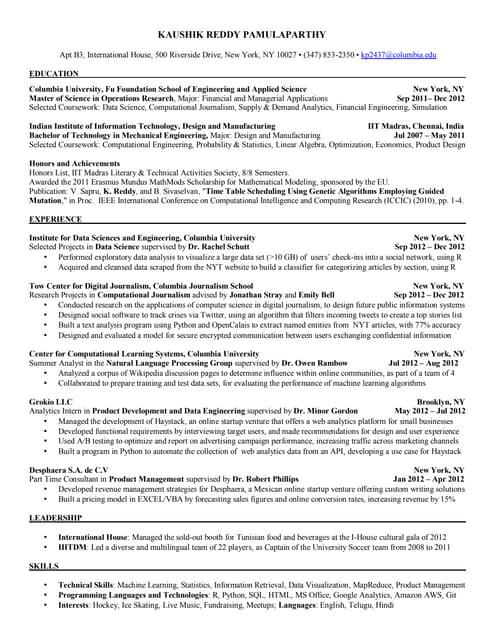What's the difference between a CV and a resume?
Hi there, I'm confused whenever a company says they want my CV. Is that different from my resume?
Both Curriculum Vitae (CVs) and Resumes are used for job applications, and they do have some distinct differences in their definitions. But I don’t think regular Filipino workplaces make that distinction. The terms are practically interchangeable to them. There's no point in asking for clarification if you know what sector you're applying to.
I do think there’s a class difference in who uses the word resume and who uses the word CV, (and who uses the term internship vs OJT) but without any clear data, I don’t want to talk about it too much today.
Roughly, companies that have a more international approach to recruiting use the word resume while firmly local companies use the word CV.
You’ll encounter the word CV more though, if your possible employer wants to see your full work history instead of an abridged highlight. This is more common for blue-collar and pink-collar workers, since previous experience in the service industry means less training on your new employer’s end.
Just to make this crystal clear, the differences mentioned below only refer to what I’ve encountered here in the Philippines. For the Western countries which dominate the media, like the United States, Canada, and Australia, the term resume is more prevalent which is where we get all our ideas about it from.
So, what’s the difference between a CV and a Resume?
There are 3 key differences: length, what’s included and omitted, and what it's used for.
1. Length
A CV is a comprehensive and extremely detailed history of your academic credentials, so it should be around 2-3 pages long.
On the other hand, a resume is a quick snapshot of what you’ve done and all the credentials you’ve racked up, plus a combination of your education and targeted skills. So, it should definitely be shorter than a CV.
I always advocate my resume consultees to only use 1 page, because truthfully none of us have done anything that warrants all that extra paper. It’s vanity to think that you, an undergrad or fresh grad, has done enough amazing things to warrant 2 pages.
Even if you’ve done 8 internships and at each one you were the star intern, it’s not something you tell people right off the bat. Which is what you’re doing by placing it in your resume. We don’t even do that in real life because that’s overt bragging, a looked-down-upon trait in PH society.
Pick out your star credentials for this particular job and copy paste them in. I advocate having a Masterfile, and a template for applications, so you can just copy paste from your Masterfile into your template. It makes life much easier.
For CVs, it’s fairly straightforward. You list everything down, all your education, papers, presentations, awards, everything. It’s easier to keep a running list of this in conjunction with an Excel sheet of everything you’ve applied to and been accepted plus rejected at.
But I won’t recommend anything extensive on this since this isn’t my forte; I only gently advise those asking for help from resume consultations.
Related: How to fix your resume in 1 hour

2. What's included and omitted
Though both reflect your working and educational background, a resume and a CV focus on different aspects.
CVs focus on one’s academic background, so you need to include and update your degrees, research, teaching experience, publications, awards, and other academic related achievements.
I honestly believe that those in the academe are far superior to those of us in corporate, because they have to pass higher metrics and standards if they ever want to get ‘promoted’. Here in corporate, anyone can succeed. In academe, only the brilliant, savvy, and value-adding ones climb up.
I have so much respect for everyone who chooses to go into academe. It’s not for everyone; it’s really only for those driven by a different kind of fire. That’s roughly what this whole tangent is about, me saying we should all hold those who go to academe with the highest possible respect.
Resumes, on the other hand, focus on work experience, co-curricular & volunteer experience, and skills plus other work related achievements. Yes, you still have to add your degrees on a resume but the main focus should always be your working experience.
You should not be adding personal information that could create a bias against you. Adding things like height, weight, address, etc. is totally unnecessary if you’re not applying for a job that requires to know your physical appearance. Like salesgirls, promo girls, front of staff, and service-based jobs as a whole.
Related: List of People in Manila Willing to Mentor You – Mentor Menu
3. What a CV or resume is used for
CVs are used for applications to academia, fellowships, scholarships, grants, or for senior-level positions in corporate organizations. But if you are reading this blog, you are most likely not a senior-level executive.
So, if you’re not applying for any of those other things, you should not be sending a 2-3 page document containing everything you’ve ever achieved.
Resumes are used for almost every other job application, especially for college students finding internships and fresh grads finding jobs.
Please please please do not send a 2 pager detailing a lot of irrelevant information about yourself. Like being prayer leader in grade 5. Or winning a model search at your local mall, and never going back to modeling again. Which are real things I’ve had people omit because this information had no use in their job search.
Related: I’m waiting for graduation, what do you think about me interning? – #DearTBC

Hi! I’m Justine.
I’m the founder and writer of all things in The Bumpy Career and welcome to Resume, a slot where I share things I’ve learned over the course of fixing my own and a lot of people's resumes, so that you guys don’t have to trial and error this stuff like I did.
Find me on other platforms.

